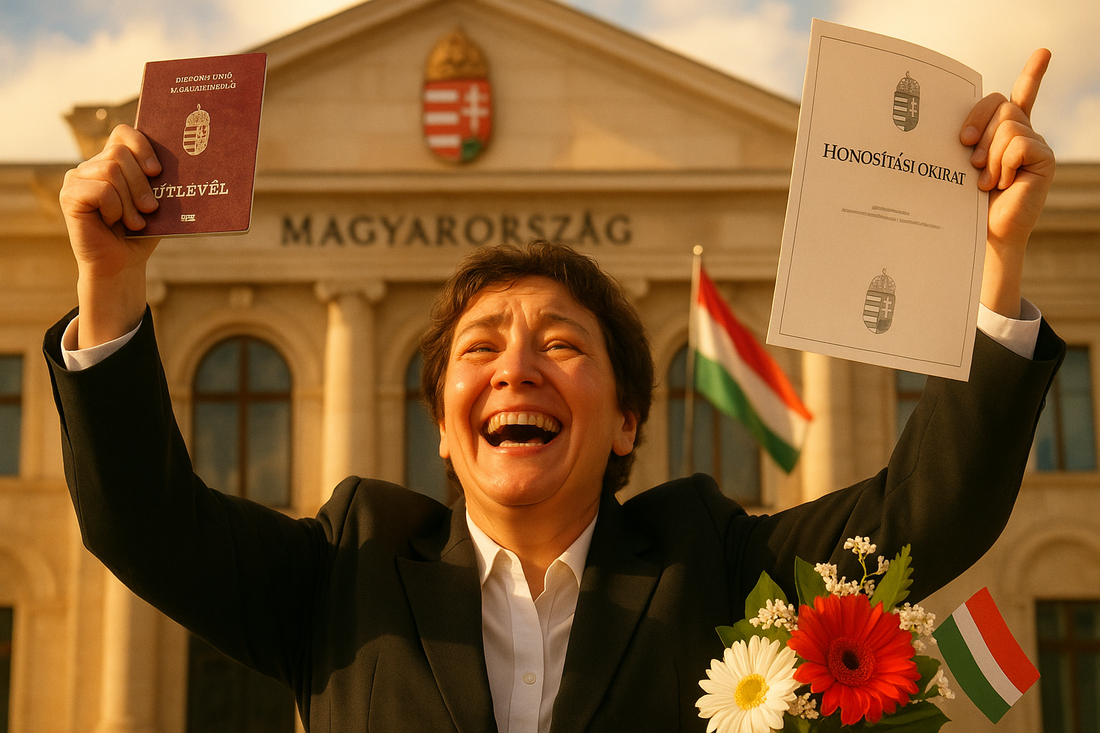
Hungarian Citizenship Eligibility, Marriage, and Wartime Exceptions — Historical Insights
Share
Disclaimer: This article is for historical and educational purposes only. It is not legal advice and may contain information that is out of date. Citizenship rules, interpretations, and administrative policies change over time. Always verify current requirements directly with an official Hungarian consulate or the Ministry of Interior in Budapest.
1. Pre-1957 Marriage Rules and Loss of Citizenship
Before October 1, 1957, Hungarian nationality law contained provisions that caused many women to lose their Hungarian citizenship automatically upon marrying a non-Hungarian man, if they acquired their husband’s citizenship through marriage.
Hungarian consular sources confirm:
“If a Hungarian citizen wife acquired by marriage the citizenship of her non-Hungarian husband, then she automatically lost her Hungarian citizenship.”
— Consulate General of Hungary, Los Angeles
After the passage of Act V of 1957, this automatic loss rule was repealed. From that point forward, marriage to a foreigner no longer caused a woman to lose Hungarian citizenship. However, this reform was not retroactive: women who had lost citizenship before 1957 did not automatically regain it.
2. The 1922 Turning Point — Automatic Acquisition by Marriage
Prior to the Cable Act of 1922 - Immigration History, under the U.S. Expatriation Act of 1907, any foreign woman who married an American automatically acquired her husband’s U.S. citizenship. Hungary’s own laws seem to have mirrored this principle: if a Hungarian woman acquired foreign nationality by marriage, she was deemed to have lost Hungarian nationality.
This means:
- Before 1922 → Automatic loss of Hungarian citizenship for women marrying foreign citizens.
- 1922 – 1957 → Conditional loss: only if the woman actually gained her husband’s citizenship (by naturalization or by the husband’s country’s law at the time).
- After 1957 → No automatic loss by marriage.
In practice, Hungarian authorities today review each historical case individually, considering both the date of marriage and whether the foreign citizenship was automatically or voluntarily acquired.
3. The Impact of War, Persecution, and Involuntary Loss
Act LV of 1993 on Hungarian Citizenship (English translation via Refworld) introduced pathways for people—or their descendants—whose citizenship was lost under coercive or persecutory circumstances to restore or verify their nationality in a variety of special ways:
"Upon request, a person whose Hungarian citizenship was terminated may be repatriated if the conditions set out in Paragraphs b) and d) of Subsection (1) of Section 4 are satisfied and he/she proves that he/she is sufficiently proficient in the Hungarian language. Declaration27 Section 5/A28 (1) By declaration addressed to the President of the Republic, the declarant shall be granted Hungarian citizenship as of the day on which it is filed:29 a)30 if having been deprived of Hungarian citizenship by virtue of Act X of 1947 and Act XXVI of 1948 on the Deprivation of Hungarian Citizenship of Certain Persons Residing Abroad, or under Act LX of 1948 on Hungarian Citizenship or Act V of 1957 on Citizenship, or if having lost his/her citizenship by virtue of Decree No. 7970/1946 ME, Government Decree 10.515/1947 Korm. or Government Decree 12.200/1947 Korm., furthermore, whose Hungarian citizenship was terminated by expatriation between 15 September 1947 and 2 May 1990; b)31 if born in the territory of Hungary and was not awarded his/her parents’ foreign citizenship as a birthright, under the law of the State where the parents hold citizenship, provided that the declarant’s parents resided in Hungary on the day of his/her birth and has been residing continuously in the territory of Hungary for at least five years prior to the submission of the petition; c)32 if the person was born before 1 October 1957 to a mother who was a Hungarian citizen and a father who was a foreign national and if no Hungarian citizenship was granted at birth. (1a)33 The declarant shall have the right to make the petition referred to in Paragraph b) of Subsection (1) before the age of nineteen. (2)34 If the declaration is approved the body in charge of naturalization and nationality matters shall issue a citizenship certificate."
These clauses are applied seemingly in this doctrine humanely to cases where Hungarian Jews, war refugees, or displaced persons were stripped of citizenship or forced to emigrate under duress. If the loss is proven to have been involuntary, the Ministry of Interior often allows verification rather than naturalization—meaning no Hungarian-language requirement and recognition of continuous citizenship.
Additionally, Hungarian administrative practice has long recognized that time spent abroad as a prisoner of war or refugee does not count toward the former “ten-year absence” rule that once could lead to loss of nationality. Thus, persons deported, interned, or displaced during WWII may not have legally lost citizenship at all.
4. Determining Whether Citizenship Was Truly Lost
During verification or restoration, Budapest’s Ministry of Interior examines both Hungarian and foreign archival data:
- Hungarian registers — population ledgers, passport records, and any decree of loss or renunciation.
- Foreign records — U.S. or other naturalisation documents, census data, or official “No Record Found” certificates from USCIS or NARA.
- Refugee documentation — Displaced-Person cards, Red Cross papers, or stateless travel documents.
If there is no record of voluntary naturalisation abroad and no entry of loss in Hungarian files, the Ministry frequently concludes that citizenship was never legally lost—qualifying descendants for Verification of Citizenship (no language exam).
5. Key Takeaways
- Before 1922: Hungarian women marrying foreigners automatically lost citizenship.
- 1922–1957: Loss only if the woman actually acquired another citizenship (by law or by naturalization).
- After 1957: Marriage has no effect on citizenship status.
- Persecution or forced displacement can justify restoration or verification, even if citizenship appeared lost.
- Verification of citizenship requires no Hungarian language knowledge, since it confirms an existing legal status rather than granting a new one.
6. Sources and Further Reading
- Consulate General of Hungary, Los Angeles — Citizenship Guidance
- Embassy of Hungary, Washington D.C. — About Hungarian Citizenship
- Act LV of 1993 on Hungarian Citizenship (English Translation)
- Globalcit PDF — Act LV of 1993 (as of Jan 2009, English)
- Lawyers Hungary – Citizenship by Descent Overview
- U.S. Citizenship and Immigration Services – Genealogy Program
- U.S. National Archives – Naturalization Research
© Learn Hungarian Anywhere. All rights reserved. This material may be shared with attribution and a link back to the original source.
